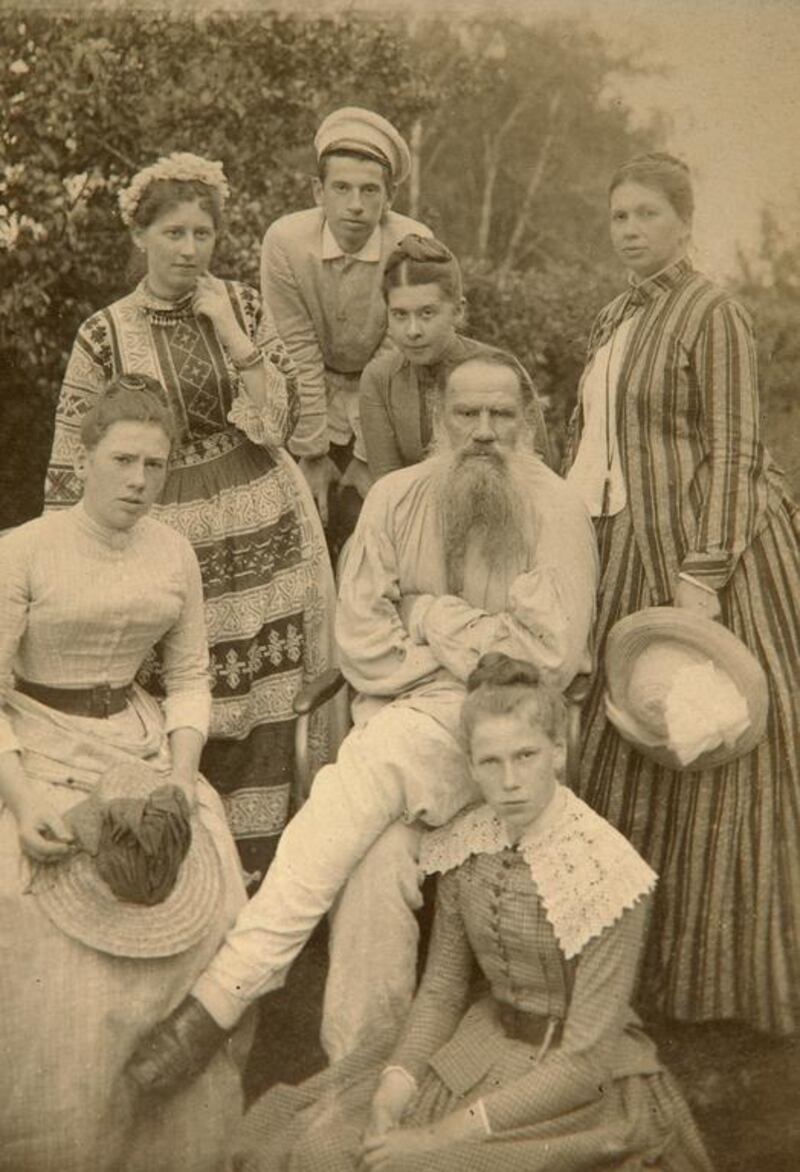For the literary critic James Wood, reading Tolstoy is a singular reading experience: his characters feel so lifelike, his fictive worlds so true. We find ourselves reading him in a different way to other writers. Awed and daunted by his “massive straightforwardness”, we confront him “Rather as one is supposed to approach an elephant” – “not from the front but the side”.
A lively, lucid and instructive new book from publisher and writer Richard Cohen informs the interested reader (and presumably the wannabe writer) not how to tackle Tolstoy but how to master his craft. How to Write Like Tolstoy: A Journey Into the Minds of Our Greatest Writers is the latest in a line of literary how-to guides by critics and cultural commentators. Harold Bloom started the trend with How to Read and Why. Terry Eagleton continued it with How to Read a Poem and How to Read Literature. John Sutherland's How to Read a Novel led to the inevitable upgrade How to be Well Read.
Like these books, Cohen’s resembles more a back-to-basics manual than a rigorous academic study. The clue is in the frivolous title. Readers won’t be transformed into Tolstoy clones, miraculously equipped to produce an artistic rendering of the Battle of Austerlitz, an incisive portrait of a fallen woman, or indeed a dreary, sermonizing epilogue.
What they will achieve, though, is a deeper appreciation for fiction, a better understanding of its nuts-and-bolts construction, and a heightened awareness of what makes certain books imperishable.
Cohen’s book is built from and around standard novel-writing components, with each chapter resembling a lecture topic or workshop session.
His first section aptly covers beginnings, of which he has several. There is the once-upon-a-time opener, signifying an escape into a make-believe world; there is the "invitational" lead-in and the "Here I am!" proclamation; and there is the "grabber", done either snappily (as in an Elmore Leonard thriller) or surreally (the game-changing first line of Kafka's The Metamorphosis).
A chapter on character shows how Tolstoy made his creations come to life through the lightest of sketches and close attendance to tics and mannerisms. Cohen notes how Jane Austen introduced her romantic leads as “handsome”, “pleasing” or “not at all handsome” and yet still didn’t sell them short. After touching on names and physical features, Cohen wrestles with the thornier and more interesting issue – and ethics – of characters based on real people, and what degree of fiction is based on fact.
A natural progression of this is Cohen’s next theme, plagiarism. He lists cases of authorial appropriation over the centuries, observing how it was acceptable for Shakespeare to rework old texts into new plays, and how in the 18th century, borrowing (or wholesale lifting) was common literary practice, as originality was viewed with suspicion.
He singles out T S Eliot in the 20th century for his attack on a Jacobean playwright's "colourless borrowings" from Shakespeare – before remarking that Eliot's masterpiece, The Waste Land, is "basically a tissue of quotations".
A chapter on point of view compares various types of first-person narrator, both reliable and unreliable, and then moves on to a full discussion of the most popular narrative voice in fiction, what Norman Mailer called “This Olympian third person, this Tolstoyan presence”.
Cohen serves up later sections about rhythm, dialogue, revisions, endings and, in Laurence Sterne’s words, “matters copulative”. He seeks to define and differentiate between irony and sarcasm, story and plot, all the time testing ideas and substantiating points by way of choice quotes from texts and excerpts from interviews with writers.
Not every literary matter is so rigorously dealt with. Cohen only gives us two unedifying pages on style (the "craft" of Jeffrey Archer warrants six) and his analysis of top-biller Tolstoy extends no further than War and Peace and Anna Karenina. He is guilty in places of spelling out the obvious, making sweeping statements and undermining his reader's intelligence ("Søren Kierkegaard was a Danish religious philosopher in the first half of the nineteenth century").
In one instance he drastically over-thinks: there is no last page to The Castle, not because K, the protagonist, "must never reach it" or so that the reader "can continue into the multilayered text forever" – but because Kafka died of tuberculosis.
In another instance he misses a trick: he quotes Bohumil Hrabal's Dancing Lessons for the Advanced in Age in his section on opening lines, but neglects to mention that the book's opening line is the novel – a roving, looping, unbroken sentence that doesn't even end on the last page.
But then Cohen's book is designed to provoke. Half the fun of reading it is nodding in agreement one minute then raising a questioning eyebrow the next. Cohen is at his most illuminating when drawing upon anecdotes from his career in publishing (and, crucially, his capacity as editor), and is at his most interesting when taking writers to task. Dickens comes under fire for his cop-out upbeat ending to Great Expectations and D H Lawrence is branded "uneven"; one of Mark Twain's viewpoints is "wrong-headed" while a Stephen King argument is "way off target".
Proof, then, if it were needed, that writers are as flawed as the rest of us. Towards the end of his book, Cohen appears to flag up his own fallibility, warning us not to take his teaching as gospel truth: “most writing rules,” he declares, “are there to be broken”. Keep an open mind throughout and Cohen’s book will make you a better reader and maybe even a better writer.
Malcolm Forbes is freelance reviewer based in Edinburgh.





